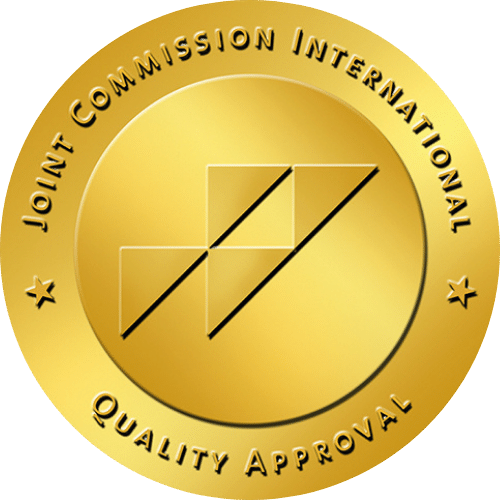4 min read
How cognitive stressors affect our brain?
Cognitive stressors are an integral part of our daily lives, influencing how we think, react, and process information. Whether it’s a tight deadline at work or the constant juggling of personal responsibilities, these stressors can challenge our brain’s capacity to function optimally. Understanding what cognitive stressors are and how they affect the brain is crucial for improving mental resilience and preventing potential long-term neurological issues.
In this article, we’ll explore the definition of cognitive stressors, provide examples of how they manifest, and dive into the neuroscientific mechanisms behind their effects. By the end, you’ll be equipped with actionable strategies to identify and manage cognitive stressors effectively. Let’s get started!

What Are Cognitive Stressors? Definition of Cognitive Stressors
Cognitive stressors are mental or thought-based triggers that cause stress by overwhelming our brain’s processing abilities. Unlike physical stressors, which arise from external factors such as injury or illness, cognitive stressors originate from our thoughts, perceptions, and decision-making processes.
Definition of Cognitive Stressors
Cognitive stressors refer to the mental strain caused by excessive thinking, overanalysis, or worrying about specific situations. For instance, replaying a past mistake or fretting over future uncertainties are classic examples of cognitive stressors in action. These stressors are often subjective, as what stresses one person might not affect another in the same way.
15 Cognitive or Thinking Stress Examples
Cognitive stressors manifest in numerous everyday scenarios, often tied to how we think and interpret situations. Here are more examples of how cognitive stressors affect our brain to help you recognize them:
- Overthinking an Argument
- Replaying a disagreement with a friend, colleague, or loved one repeatedly in your mind, second-guessing your words, or imagining alternate outcomes.
- Decision Paralysis
- Facing a tough choice—such as selecting a university, deciding on a major purchase, or determining a career path—and feeling overwhelmed by the potential consequences.
- Upcoming Deadlines
- Constantly worrying about meeting deadlines for work, school, or personal projects, especially when expectations are high.
- Unresolved Problems
- Mentally circling around unresolved conflicts, financial concerns, or complex challenges without reaching a solution.
- Fear of Failure
- Focusing on worst-case scenarios, such as failing an exam, losing a job, or underperforming in a critical task, which can exacerbate stress.
- Social Anxiety
- Overanalyzing conversations, imagining negative judgments from others, or worrying excessively about how you’re perceived in social interactions.
- Perfectionism
- Holding yourself to impossibly high standards and obsessing over small details in your work or appearance.
- Future Uncertainty
- Stressing about unknown outcomes, such as economic stability, job security, or personal relationships, leading to an ongoing cycle of worry.
- Health Concerns
- Overthinking minor health symptoms and imagining the worst-case scenarios, often fueled by online self-diagnosis.
- Multi-Tasking Pressure
- Trying to juggle several responsibilities at once, such as balancing work, family, and personal commitments, without sufficient time or resources.
- Replaying Embarrassing Moments
- Dwelling on past mistakes or social faux pas, even long after the event has passed.
- Fear of Missing Out (FOMO)
- Worrying about opportunities you might miss or decisions you could regret, especially in a social or professional context.
- Rumination on Regret
- Continuously revisiting past decisions or actions and imagining how things could have been different.
- Comparing Yourself to Others
- Engaging in mental comparisons with peers or influencers, leading to feelings of inadequacy or stress.
- Unrealistic Expectations
- Feeling pressured to meet self-imposed or external expectations that are difficult or impossible to achieve.

How Cognitive Stressors Affect Our Brain
how cognitive stressors affect our brain? They create a cascade of physiological and neurological changes that can significantly impact brain function and overall well-being. Let’s break down these effects in detail:
The Stress Cerebral Connection
When the brain perceives a cognitive stressor, the hypothalamus activates the hypothalamic-pituitary-adrenal (HPA) axis, triggering the release of cortisol and adrenaline. While these hormones prepare the body for immediate challenges, prolonged exposure can overwhelm the brain’s regulatory systems.
- Short-Term Effects: Increased alertness, sharper focus, and enhanced energy levels to address the immediate stressor.
- Long-Term Effects: Chronic cortisol exposure can lead to inflammation, disrupt neural communication, and impair overall brain health.
Structural Changes in the Brain
Prolonged exposure to cognitive stressors can physically alter the brain’s structure:
- Prefrontal Cortex Shrinkage: The prefrontal cortex, which governs critical thinking and decision-making, tends to shrink with chronic stress, reducing its capacity for complex reasoning.
- Hippocampus Deterioration: Vital for memory and learning, the hippocampus can shrink under chronic stress, impairing memory formation and retrieval.
- Amygdala Hyperactivity: The amygdala, responsible for emotional processing, becomes overactive, making individuals more prone to anxiety, fear, and emotional outbursts.
Impacts on Neurotransmitters
Cognitive stress disrupts the production and balance of key neurotransmitters:
- Serotonin: Reduced levels can lead to mood disorders such as depression and anxiety.
- Dopamine: Imbalances affect motivation, pleasure, and reward-seeking behavior, potentially contributing to burnout.
- Glutamate: Increased glutamate levels can lead to excitotoxicity, which damages neurons and contributes to cognitive decline.
Functional Consequences
The combined effects of structural changes and neurotransmitter imbalances manifest in various cognitive and behavioral issues:
- Memory Impairments: Difficulty recalling recent events or retaining new information.
- Reduced Focus: Inability to concentrate on tasks, leading to decreased productivity.
- Decision-Making Challenges: Increased reliance on emotional responses and impulsive decisions.
- Sleep Disruption: Stress often impairs sleep quality, which further exacerbates cognitive difficulties.
Long-Term Implications
If unmanaged, the effects of cognitive stressors can lead to severe neurological and psychological conditions:
- Chronic Stress Disorders: Long-term stress can result in anxiety disorders, depression, or post-traumatic stress disorder (PTSD).
- Neurodegenerative Diseases: Chronic inflammation and neural damage are linked to conditions such as Alzheimer’s and Parkinson’s disease.
- Cardiovascular Risks: Prolonged stress increases the risk of hypertension, heart disease, and stroke, all of which indirectly impact brain health.

How Can Stress Affect Your Decision-Making?
Cognitive stress plays a significant role in the way we make decisions, often causing us to prioritize short-term relief over long-term benefits. Here’s how stress impacts this critical function:
Impaired Judgment: Under stress, the prefrontal cortex’s ability to assess risks and rewards diminishes. This can lead to impulsive choices or an inability to commit to any decision at all.
Increased Risk of Errors: Stress reduces cognitive capacity, making it harder to process all available information. This often results in overlooking important details or making hasty conclusions.
Emotional Bias: A stressed brain leans heavily on emotional cues rather than logical reasoning, which can skew decision-making processes. For example, fear of failure might lead to avoiding challenges entirely.
Difficulty in Problem Solving: Cognitive stress narrows focus, making it harder to think creatively or consider alternative solutions to complex problems.
How to Identify Cognitive Stressors in Your Life
Recognizing the sources of cognitive stress is a crucial first step in addressing its effects. Here are some practical ways to pinpoint stressors:
Reflect on Daily Patterns: Take note of situations or tasks that leave you feeling mentally drained or overwhelmed. Common triggers include tight deadlines, difficult conversations, or multitasking demands.
Monitor Physical and Emotional Responses: Pay attention to how your body and mind react to stress. Symptoms such as restlessness, headaches, or persistent worry often indicate the presence of cognitive stressors.
Use Stress-Tracking Tools: Consider journaling your thoughts or using mobile apps designed to track stress patterns. These tools can provide insights into recurring triggers and their intensity.
Seek Feedback from Others: Sometimes, those around us can identify stressors we might overlook. Don’t hesitate to ask trusted friends, family, or colleagues for their perspective.
Strategies to Manage and Reduce Cognitive Stress
Managing cognitive stress effectively requires adopting strategies that promote mental resilience and balance. Here are some practical techniques to reduce cognitive stress and its impact on your brain:
Practice Mindfulness and Meditation: Mindfulness encourages focusing on the present moment, reducing overthinking and worry.
- How to Start: Try guided meditation apps or simple breathing exercises to ground yourself during stressful moments.
Prioritize Physical Activity: Regular exercise reduces cortisol levels and boosts endorphins, improving mood and cognitive function.
- Tip: Activities like yoga or walking outdoors are particularly effective for stress relief.
Organize Your Tasks: Cluttered schedules can increase cognitive stress.
- How to Manage: Use to-do lists or digital planners to break tasks into manageable steps, giving you a sense of control and accomplishment.
Reframe Negative Thoughts: Challenging unhelpful thoughts can reduce their emotional impact.
- Example: Instead of thinking, “I’ll never finish this project,” reframe it as, “I’ll tackle it step by step and do my best.”
Build a Support Network: Talking to trusted friends, family, or colleagues can provide perspective and emotional relief.
- Action Step: Schedule regular check-ins with someone you trust to share your feelings and challenges.
Limit Exposure to Triggers: Identify and minimize exposure to stressors that worsen your cognitive load, such as excessive news consumption or toxic relationships.
Prioritize Sleep: Good-quality sleep is essential for cognitive recovery.
- Tip: Maintain a consistent sleep schedule and create a calming bedtime routine to support restorative rest.
When to Seek Professional Help
Cognitive stress becomes a concern when it disrupts daily life, persists despite self-management, or causes physical symptoms like headaches, fatigue, or sleep issues. These signs may indicate deeper neurological or psychological conditions requiring expert care.
At Neurology Mobile, we specialize in diagnosing and managing stress-related impacts on brain health. Our personalized care plans help you address symptoms effectively and regain control. Don’t wait—schedule an appointment today to prioritize your mental well-being.
Conclusion
Cognitive stressors are an inevitable part of life, but understanding their impact and taking proactive steps can protect your brain and overall well-being. By recognizing stressors, implementing effective strategies, and seeking help when needed, you can significantly reduce their influence.
At Neurology Mobile, we are committed to helping you manage stress and optimize brain health. Whether through preventative advice or expert care, we’re here to support you on your journey to mental resilience.
Take the first step towards a healthier brain today. Visit Neurology Mobile to learn more about our services and schedule an appointment. Your future self will thank you!
FAQs About how cognitive stressors affect our brain
What are cognitive stressors and how how cognitive stressors affect our brain?
Cognitive stressors are mental triggers that can overwhelm our brain’s ability to process information effectively. These stressors activate the brain’s stress response system, disrupting decision-making, memory, and focus, while also affecting key regions like the hippocampus and prefrontal cortex.
How cognitive stressors affect decision-making and focus?
Cognitive stressors impair the prefrontal cortex, which is vital for logical thinking and decision-making. Under stress, people may struggle to focus, make impulsive choices, or overanalyze situations, leading to indecision and reduced productivity.
What are common examples of cognitive stressors?
Examples of cognitive stressors include overthinking past events, worrying about future outcomes, replaying arguments in your mind, and struggling with perfectionism. These often stem from how we interpret and process situations rather than external realities.
What are stress cerebral effects caused by cognitive stressors?
Stress cerebral effects include changes in brain structure and function, such as a shrunken hippocampus (affecting memory), overactive amygdala (increasing anxiety), and impaired prefrontal cortex (reducing focus and decision-making abilities).
Can cognitive stressors lead to long-term neurological problems?
Chronic exposure to cognitive stressors can contribute to mental health conditions like anxiety and depression, as well as neurodegenerative diseases such as Alzheimer’s. It’s essential to manage these stressors to protect long-term brain health.
